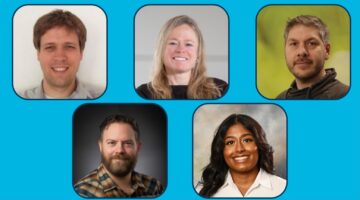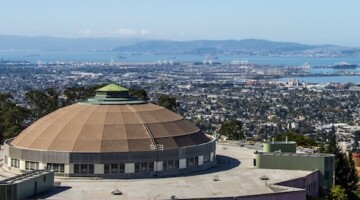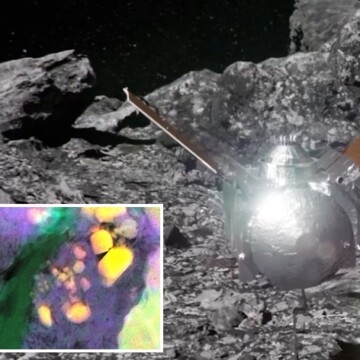Researchers identified nitrogen-rich compounds in samples from the asteroid Bennu, returned to Earth by NASA’s OSIRIS-REx mission. The results support the idea that asteroids like Bennu may have delivered the essential chemical building blocks of life to Earth in the distant past. Read more »![]()
![]()
The Advanced Light Source is a U.S. Department of Energy scientific user facility at Lawrence Berkeley National Laboratory. Our mission is to advance science for the benefit of society by providing our world-class synchrotron light source capabilities and expertise to a broad scientific community.

New UEC Members for 2026
Welcome to new 2026 members Alex Ditter, Brandy Stewart, Baran Eren, Harry Lisabeth, and Simruthi Subramanian! Special thanks to the outgoing members, Quentin Williams, Sophie Morley, Tamas Varga, Leonid Sheps, Aidan Coffey, and Alexander Baker for their service. Read more »

Robotics Project Pushes Toward Self-Driving Materials Optimization
A new multi-disciplinary team aims to automate complex sample handling at Beamline 7.3.3, leveraging AI and robotics to speed up material optimization and discovery. Read more »

Ian Lacey, Principal Scientific Engineering Associate
The storage ring of the ALS generates incredibly bright beams of x-rays. But they are only useful to users, if we can steer and focus them onto the sample. Ian Lacey, working in the metrology lab of the ALS, helps measure and tune the optical elements needed for that steering. Read more »

Director’s Message on Beamlines
As we are preparing for a transformative upgrade of the ALS, we are also reviewing our beamline portfolio to ready it for our operation after the dark time. To make space for new scientific developments, we have made the difficult decision to not reopen several beamlines and endstations. We have held a series of user forums and look forward to continued engagement with our community for new developments and opportunities. Read more »
Recent High-Impact Publications
- Li, S., C. Su, Z. Qin, A. Alatas, M. Kunz, T. Yamada, S.D. Kelly, M.H. Upton, A. Gironda, J. Zhao, B. Kalkan, W. Yang, T. Aoki, and Y. Hu, “Metallic θ-phase tantalum nitride has a thermal conductivity triple that of copper,” Scienceeaeb1142 (2026), doi:10.1126/science.aeb1142 (January 15, 2026).
- Glaser, A.W., R.A. Pádua, A.M. Ojoawo, C. Sullivan, and D. Kern, “Phosphatase SHP2 pathogenic mutations enhance activity by altering conformational sampling,” Proceedings of the National Academy of Sciences of the United States of America 123, e2513851123 (2026), doi:10.1073/pnas.2513851123 (January 13, 2026).
- Martinez Fernandez, J.L., A.V. Nguyen, M. Gharaee, A. Haji Seyed Javadi, T.R. Cundari, and D. Tilley, “Nitrile RC?N Triple Bond Cleavage by a Dicopper Nitrite Complex with N2 Elimination and Formation of RCO2- Carboxylate Ligands,” Journal of the American Chemical Society (2026), doi:10.1021/jacs.5c18844 (January 11, 2026).
- Cleron, J., C. Chen, F. Pan, S. Saha, F.P. Marlton, R.M. Stolz, J. Li, J. Dionne, F. Liu, M.R. Filip, and H.I. Karunadasa, “Twisted Tin-Chloride Perovskite Single-Crystal Heterostructures,” Angewandte Chemie International Editione20140 (2026), doi:10.1002/anie.202520140 (December 19, 2025).
- Zhou, W.-Y., M. Hao, W. Su, T. Kim, S. Chen, S.-H. Shim, D. Zhang, P.H. Nguyen, K. Armstrong, and J. Zhang, “Elasticity of davemaoite as a primary contributor to lower-mantle heterogeneities,” Science 390, 935 (2025), doi:10.1126/science.adx8356 (November 27, 2025).
